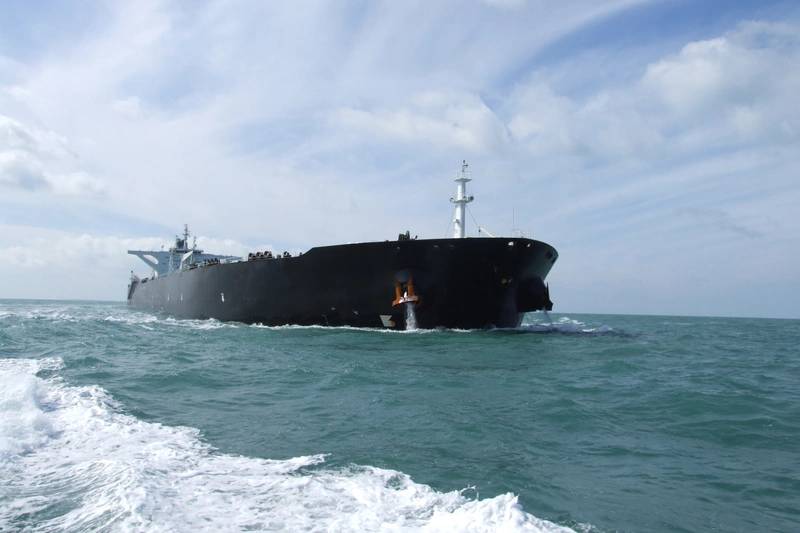Iran Stores More Oil on Tankers
Iran, which has the world’s fourth-largest oil reserves, could quickly export millions of barrels of crude and help drive down red-hot oil prices if it reaches a deal in ongoing talks with the United States on its nuclear program.
The U.S. government lifted some sanctions on the Iranian nuclear program as a goodwill gesture on Friday to speed up the talks. Washington expects negotiations to reach a conclusion in coming weeks. The talks in Vienna will resume on Tuesday.

Here are the latest estimates on Iran's oil production, exports and inventories.
Exports
The imposition of U.S. sanctions led Iranian oil exports to drop from 2.8 million barrels per day (bpd) in 2018 to as little as 100,000 bpd in 2020.
Iran's oil exports currently average around 600,000-700,000 bpd, according to data and analytics firm Kpler.
Inventories
It seems Iran has been moving oil into place to prepare for the eventual resumption of its exports.
Iran's floating storage has jumped from around 63 million barrels in early December to 87 million barrels in February, according to Kpler.
On the other hand, Iran's onshore storage is currently at 49 million barrels, against a high of 66 million barrels in late May 2021.
"That's roughly the two-thirds of total crude and condensate held in floating storage globally," said Homayoun Falakshahi, a senior analyst at Kpler.
Consultancy firm FGE estimates Iran has in total 90 million barrels of crude in storage, of which 5 million barrels are floating.
Around 60 million barrels of oil are stored onshore in Iran, and 25 million barrels onshore in leased tanks abroad, mainly in China, according to FGE.
Iran's total stocks of condensate were as high as 120 million barrels, of which 68 million barrels were floating, according to FGE.
Production
Iran sits on the world’s fourth-largest oil reserves.
Iranian oil production increased from an average of 2 million bpd in 2020 to 2.4 million bpd in 2021, according to OPEC data based on secondary sources.
Iran plans to increase output to 3.8 million bpd when the sanctions are lifted.
(Reporting by Bozorgmehr Sharafedin; Editing by Bernadette Baum)
